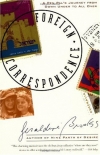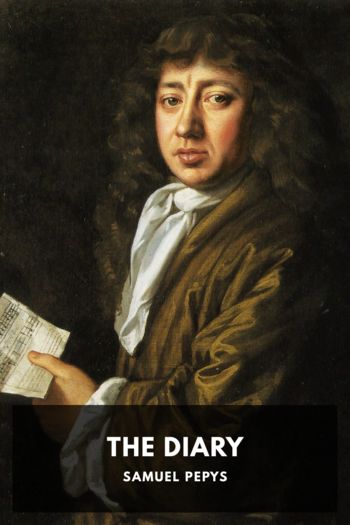Foreign Correspondence: A Pen Pal's Journey by Geraldine Brooks (finding audrey .TXT) 📗

- Author: Geraldine Brooks
Book online «Foreign Correspondence: A Pen Pal's Journey by Geraldine Brooks (finding audrey .TXT) 📗». Author Geraldine Brooks
Other lessons came from experience. Iraqi secret police riffling through my contact book showed me the wisdom of purging the names and numbers of local dissidents. And the words “Don’t leave home without it” took on new meaning the day I found myself miming “tampon” to a Farsi-speaking pharmacy clerk in Iran.
• • •
Covering the racetrack in Sydney, or writing about the decline of basic industry in the American Midwest, I’d never imagined myself as someone whose packing list would include a chador, much less a bulletproof vest. After a year and a half with The Wall Street Journal in Cleveland, I’d gone home to Sydney, to get on with what I still thought of as my real life, my Australian life. But then the Journal decided it needed an Australasian bureau, and so I became a Foreign Correspondent who wasn’t foreign, writing features about things that were familiar to me yet exotic to my readers. Since the Journal didn’t have a pressing interest in hard news from Australia, I was free to write pretty much what I liked. In between corporate stories I’d roam the Outback for weeks, profiling a bargeman who delivered supplies to remote Aboriginal settlements in the Northern Territory, or saddling up with one of the last of the Queensland cattle drovers.
In 1987, I’d just filed a piece on how New Zealand scientists were using the country’s vast population of methane-producing, flatulent sheep to study global warming when the Journal’s foreign desk in New York called. New York never called me. On the foreign editor’s international priorities list, Sydney rated a notch or two ahead of Djiboutiville. As I answered the phone, I worried she was calling to chastise me about too many tasteless sheep-fart jokes.
Instead, she was offering me one of the paper’s plum jobs: Middle East correspondent covering a beat that ranged over twenty-two countries. The job had become vacant because its previous occupant decided to return to Washington after spending several days in an Iranian jail. The Iranians had accused him of being a Zionist spy. The Journal got him released after pointing out that he wasn’t even Jewish.
One small problem about me replacing him: I was.
• • •
Three years earlier, on a wintry day in Cleveland, I had stepped into a tiled tub of purified rainwater, sunk to my knees and let the liquid close over me. Looking up at the blurred yellow shapes thrown against the tiled walls by the electric light, I exhaled and watched my last breath as a Gentile bubble upward.
I broke the surface, the water sluicing off my bare skin in sparkling cascades, and proclaimed the Shema—“Hear, O Israel, the Lord our God. The Lord is One.” Tradition teaches that a convert is a Jewish soul trapped by mistake in a Gentile body. Immersion in the ritual bath frees the soul again. Perhaps that trapped soul explained why, fourteen years earlier, a Sydney girl who had never met a Jew walked around with a Star of David dangling against the collar of her Catholic-school uniform.
Daddy, back home in Sydney, had been delighted when I wrote to say that the romance with Tony seemed serious. “So fascinating to think we might have a genuine Jew boy in the family,” he wrote. “I suspect it’s in the genes somewhere.” When he was a soldier in Palestine, he had fallen for a young sabra. She had ended the relationship because he wasn’t Jewish.
Tony didn’t care if I was Jewish or not, and seemed bemused when I announced I wanted to convert. The night of my mikvah, he came reluctantly to hear me read my Torah portion, dragging himself through the synagogue door burdened by the same childhood memories of boredom and dread that dogged me every time I had to enter a Catholic church.
I was trying to fill what Salman Rushdie has described as the religion-shaped hole in modern lives: a place that yearns for links with past communities and for a coherent reason to do the right thing rather than the expedient one. Now my links were with Tony’s three-thousand-year-old Jewish heritage, a heritage that had always insisted that religion passes to the child through the mother. Unless I converted, our children wouldn’t be Jews. Somehow, Tony’s forebears had kept their tradition alive through the Babylonian exile, the Spanish Inquisition, Russia’s pogroms, the Holocaust. I didn’t want to be the one to bring it to an end.
And so on that frozen Midwestern morning I became a Jew. In a few weeks more I became a Jewish bride. Barely four years later I finally arrived in Israel.
My life had given me the teenage fantasy I’d cooked up as I wrote to my Israeli pen pals and dug my mother’s vegetable garden pretending it was an embattled kibbutz. But it was my fantasy revised beyond recognition. When I arrived in Eretz Israel in December 1987, it wasn’t as a swamp-draining Zionist pioneer but as a Foreign Correspondent with a reservation at the Jerusalem Hilton.
I was there to cover the eruption of rage that would become known as the intifada. Within a day of my arrival I found myself in the no man’s land between Palestinian rocks and Israeli rubber bullets. I’d made a classic rookie-correspondent error, a





Comments (0)